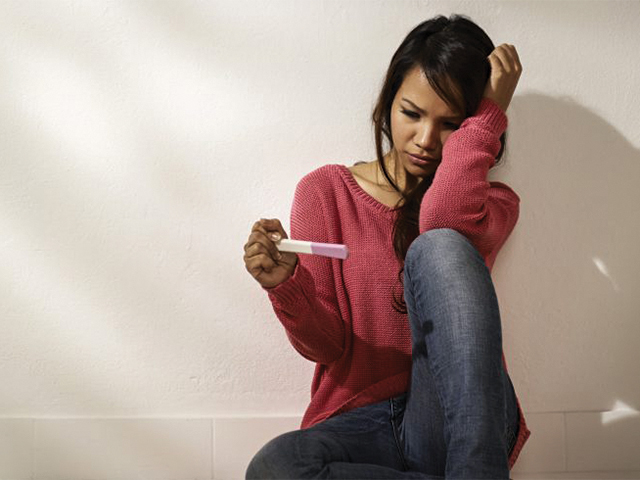
[dropcap]O[/dropcap]n May 25th, 2018, Ireland repealed the 8th Amendment with a progressive landslide victory, with 66.4% of the electorate voting for the legislation of safe medical abortions. 64.5% of the electorate voted, which was one of the highest recorded turnouts for a referendum in the state’s history.
In 2021, the reality is that there are still many barriers in place which prevent women from accessing abortions in the state.
90% of GPs and half of maternity hospitals across the state still refuse to provide abortion care. Many women are still forced to travel extensive distances to avail of these services.
Abortion Rights Campaign (ARC), a grassroots all-volunteer group recently conducted research with Dr. Lorraine Grimes in which one participant stated: “My GP refused to carry out the abortion or refer me to another doctor, which delayed my abortion by two weeks. I found out quite early on, and had to drag a pregnancy on for an excruciatingly long two extra weeks without any need, simply because my GP did not want to prescribe the pills.”
ARC found that 6,577 people accessed abortions across the state in 2020, despite the pandemic which proves the essential nature of abortion services.
They found that at least 194 people from the Republic of Ireland were forced to travel to the UK for abortions, they also noted that this figure only represents those who gave Irish addresses to the UK health providers.
Those figures do not include those who ordered abortion pills online or those who made the journey to the UK from Northern Ireland.
Those living in rural communities in Ireland have had to continue to make long journeys in order to access abortion care. Particularly in counties like Sligo where there is no community provision of abortion services.
The mandatory three day wait for abortion has caused many women significant emotional trauma, many found it demeaning having to wait for essential medical care.
One respondent to ARC’s research noted the difficulties she faced due to the waiting period: “It was very difficult to arrange transport from my rural location to the GP. I arranged for a friend to accompany me on the first visit because the secretary had been so hostile, but my friend could not come with me the second time because she must work.”
Another anonymous respondent who suffered with morning sickness said: “At no point was I hesitant in my decision, and the waiting period prolonged my discomfort. It also felt so patronising and condescending.”
“It’s my choice, and I should be able to execute it without delay.” She said.
Among the reasons given for travelling abroad to access abortion services included; passing the 12-week limit, being diagnosed with a fatal foetal anomaly that did not unambiguously fall within the restrictive bounds of the Health Act 2018, a failed early medical abortion, or being given inaccurate information about the pregnancy, according to ARC’s “Too Many Barriers” report.
Spokesperson for ARC Helen Stonehouse noted that only 25 people accessed abortion on the ground of a medical emergency, a similar number to that of 2019 and under the Protection of Life During Pregnancy Act.
“In terms of fetal anomalies, it is clear that our system is still grossly failing those who shared their heart-breaking stories during the campaign to repeal the 8th,” said Ms. Stonehouse.
In 2020, over 40% of women who received a prenatal diagnosis still had to make the journey to the UK to receive the care that they should be granted in Ireland, as promised to the nation on May 25th, 2018.
“I am scarred for life. I will never be able to get on a flight without thinking of having to travel for termination for medical reasons. We had to do all of this during the pandemic and didn’t know if my husband could be with me for support,” stated a woman who travelled to the UK for an abortion.
ARC have made clear in the report from September 22nd that Ireland’s Health Minister Stephen Donnelly must “make good on his commitment to make legislation for safe access zones his priority.”
Simon Harris, the Health Minister throughout the legislating of abortion services in 2018, acknowledged the need for the implementation of safe access zones was crucial to providing safe access to abortion.
Those seeking abortions nationwide are facing intimidation from anti-abortion protesters outside GP centres and maternity hospitals that provide abortion services. They have experienced verbal abuse and harassment outside clinics. This includes people doing rosaries and people praying with coffins.
One participant in ARCs research said that “this should be illegal, they have no idea what I’ve been through.” Abortion can be an intensely emotional medical experience, the harassment and intimidation intensifies the emotional toll and trauma experienced by the women that avail of the services.
There are many barriers in place that deter people from accessing safe abortions across the nation. Although the 8th Amendment was repealed, there is still a long way to go in terms of providing the unbiased and necessary medical care required.
“Irish politicians, medical professionals, media, and others have more to do to ensure that all residents of Ireland can access the care they need with dignity and respect,” ARC’s report concluded.
Kathleen Keane
Image Credit: Dualstock



